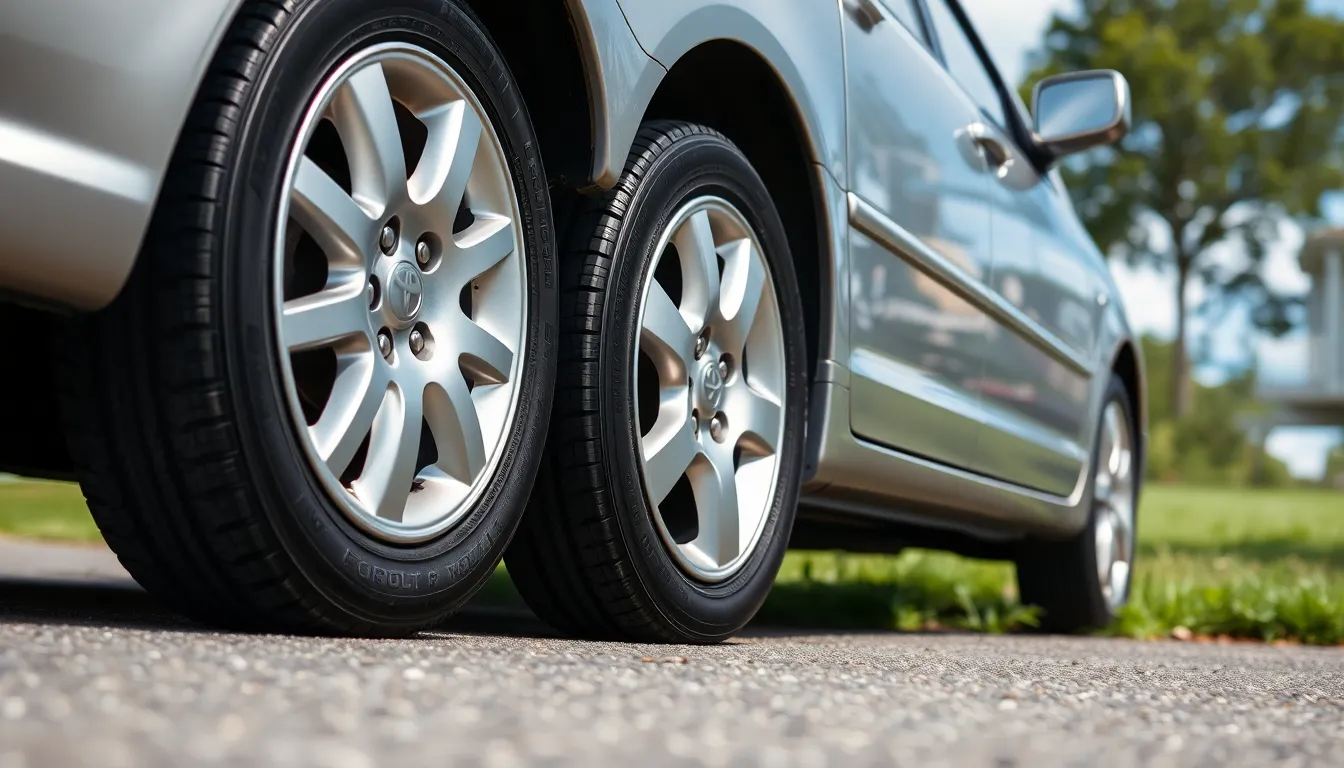Finding the right tire size for your 2004 Toyota Corolla doesn’t have to be complicated. We’ve all been there – standing in the tire shop feeling overwhelmed by numbers and letters that seem like a foreign language. Whether you’re replacing worn-out tires or upgrading for better performance, knowing your Corolla’s exact tire specifications is crucial for safety and optimal driving experience.
Your 2004 Corolla came with exact tire dimensions from the factory, and understanding these numbers can save you money and ensure you’re getting the perfect fit. We’ll break down everything you need to know about tire sizes, from reading the sidewall codes to exploring your upgrade options.
Getting the wrong tire size can affect your speedometer accuracy, fuel economy, and even your vehicle’s handling. That’s why we’ve compiled this comprehensive guide to help you make the smartest tire choice for your reliable Corolla.
Factory Tire Size for 2004 Toyota Corolla
The 2004 Toyota Corolla comes equipped with P185/65R15 tires as the standard factory specification. This tire size designation breaks down into exact measurements that determine the tire’s dimensions and performance characteristics.
Understanding each component of the P185/65R15 specification helps owners make informed decisions about replacements and upgrades:
| Component | Value | Meaning |
|---|---|---|
| P | Passenger | Vehicle type designation |
| 185 | 185mm | Tire width in millimeters |
| 65 | 65% | Aspect ratio (sidewall height to width) |
| R | Radial | Construction type |
| 15 | 15 inches | Wheel diameter |
Passenger car designation (P) indicates these tires are engineered specifically for passenger vehicles like the Corolla. The 185mm width provides adequate contact patch for traction while maintaining fuel efficiency standards Toyota designed for this model year.
Aspect ratio of 65 means the sidewall height measures 65% of the tire’s width, creating a sidewall height of approximately 120mm. This ratio balances ride comfort with responsive handling characteristics that complement the Corolla’s suspension tuning.
Radial construction (R) offers superior durability and heat dissipation compared to bias ply alternatives. Modern radial tires provide consistent performance across various driving conditions and temperatures.
15-inch wheel diameter represents the standard rim size for the 2004 Corolla across all trim levels. CE, S, and LE variants all use this same tire specification from the factory.
Load index and speed rating complete the tire specification, typically appearing as 87T or 87H depending on the exact tire manufacturer Toyota selected for your vehicle. These ratings indicate maximum load capacity and speed capabilities that match the Corolla’s performance parameters.
Understanding Tire Size Numbers and Specifications
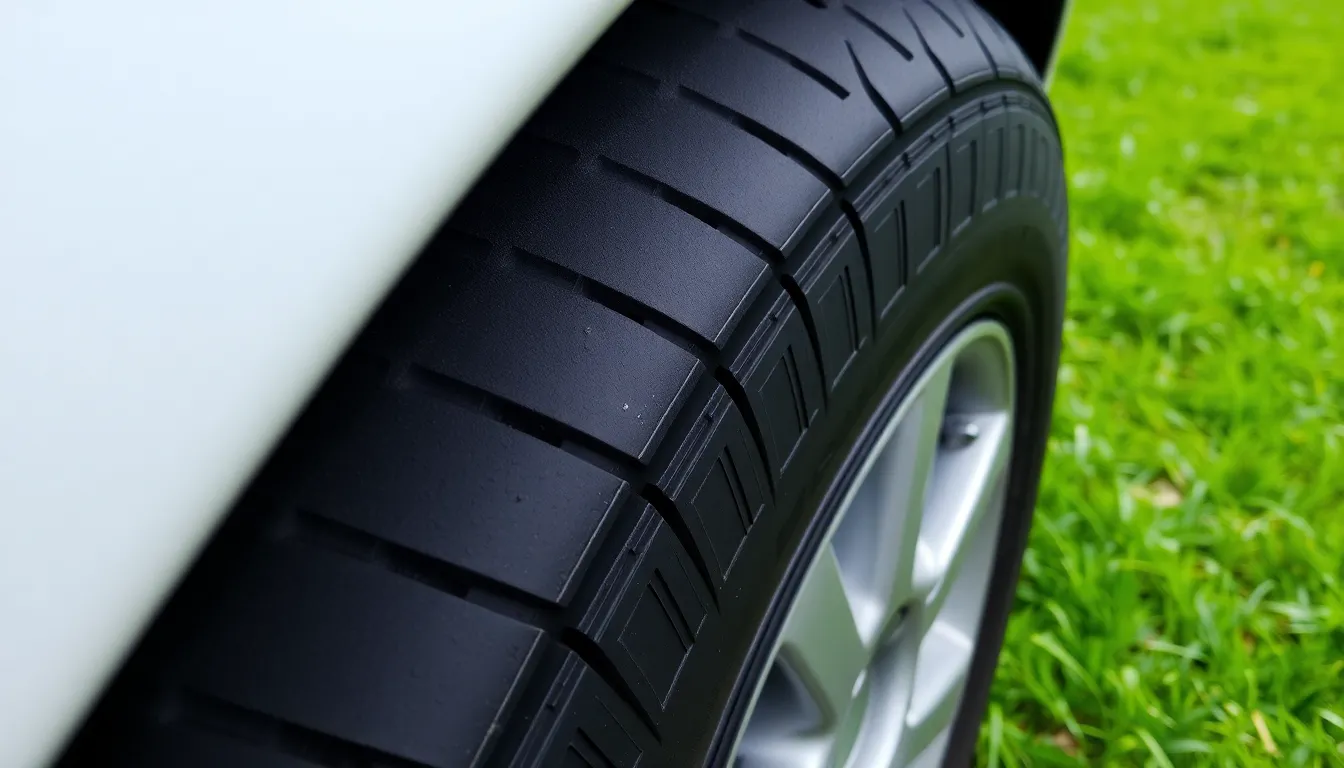
The alphanumeric code on your 2004 Toyota Corolla’s tire sidewall contains essential specifications that determine performance characteristics. Each element in this sequence provides exact information about tire dimensions and construction type.
Reading the Tire Size Code
We identify tire specifications by examining the sidewall markings where manufacturers print the complete size information. The tire size code follows a standardized format that remains consistent across all passenger vehicle tires. Reading from left to right, the code begins with a letter designation followed by three sets of numbers separated by forward slashes and letters.
For the 2004 Toyota Corolla, you’ll typically find P195/65R15 or P205/55R16 printed on the sidewall depending on your exact trim level. The code appears in raised lettering molded directly into the rubber sidewall during manufacturing. Locating this information requires checking the outer sidewall area where the tire meets the wheel rim.
What Each Number Means
Tire Class designation appears first in the sequence, with P indicating passenger car classification suitable for standard automotive use. Light truck tires display LT instead, though this classification doesn’t apply to Corolla applications.
Section Width represents the first numeric value measuring tire width in millimeters from sidewall to sidewall. The 195mm measurement in P195/65R15 indicates the tire’s cross-sectional width when properly mounted and inflated. This width affects contact patch size and handling characteristics.
Aspect Ratio follows as the second number expressing sidewall height as a percentage of section width. A 65 aspect ratio means the sidewall height equals 65% of the 195mm width, calculating to approximately 127mm of sidewall height. Lower aspect ratios create shorter sidewalls for improved handling response.
Construction Type uses the letter R to specify radial tire construction where internal cord plies run perpendicular to the direction of rotation. Radial construction provides better fuel economy and longer tread life compared to bias-ply alternatives.
Wheel Diameter concludes the sequence with the rim size measurement in inches. The 15-inch specification indicates the tire fits wheels measuring 15 inches across the mounting surface. Upgrading to 16-inch wheels requires corresponding tire size adjustments to maintain proper overall diameter.
OEM Tire Options by Trim Level
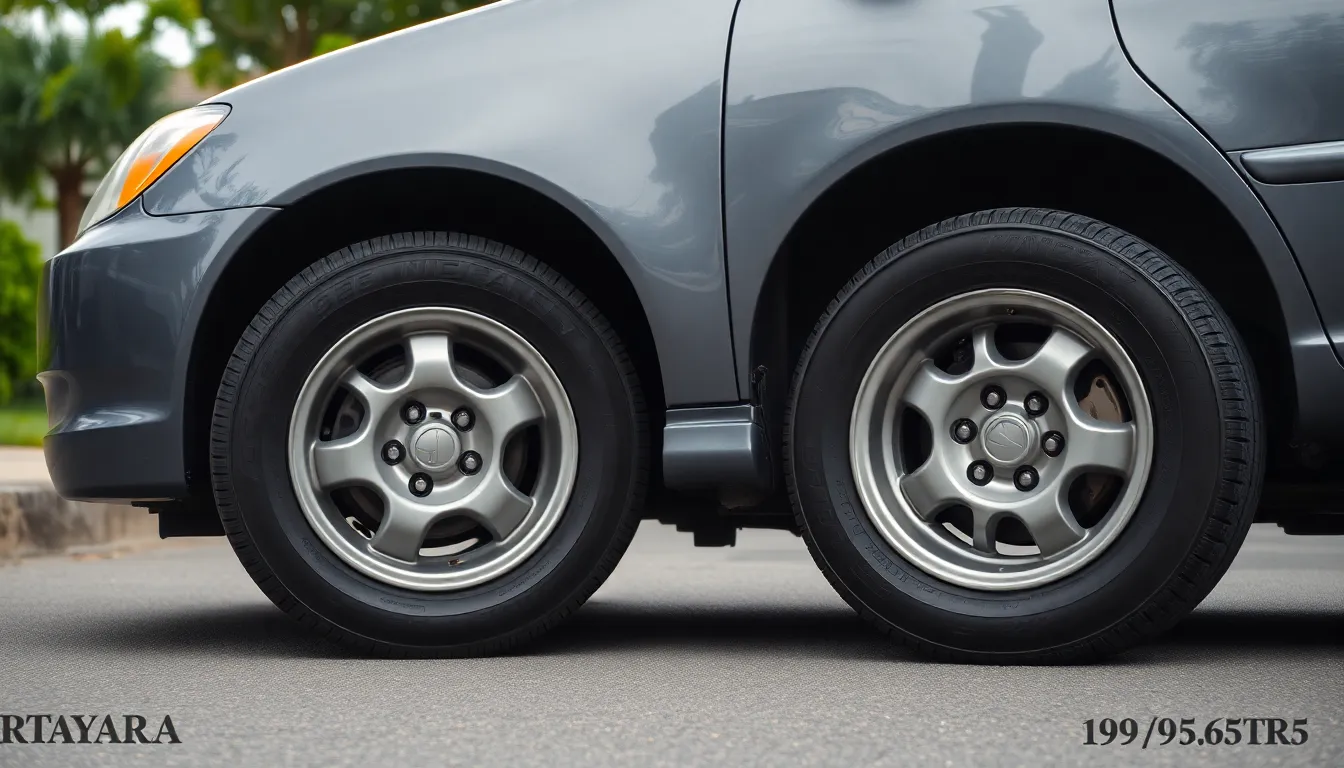
Different trim levels of the 2004 Toyota Corolla come equipped with distinct tire sizes from the factory. Understanding these variations helps us select the appropriate replacement tires for each exact model.
Base Model CE Specifications
The CE trim level represents the base model configuration for the 2004 Toyota Corolla. This trim comes factory equipped with 185/65R15 tires as standard equipment. These tires provide adequate performance characteristics for everyday driving while maintaining cost effectiveness for budget conscious consumers.
LE and S Model Differences
Both LE and S models use identical tire specifications even though their different feature sets. These higher trim levels come equipped with 195/65R15 tires as original equipment. The wider 195mm section width compared to the CE’s 185mm provides enhanced road contact and improved handling characteristics. Both models share this tire size configuration making replacement tire shopping straightforward for owners of either trim level.
| Trim Level | OEM Tire Size |
|---|---|
| CE (Base) | 185/65R15 |
| LE | 195/65R15 |
| S | 195/65R15 |
Compatible Tire Size Alternatives
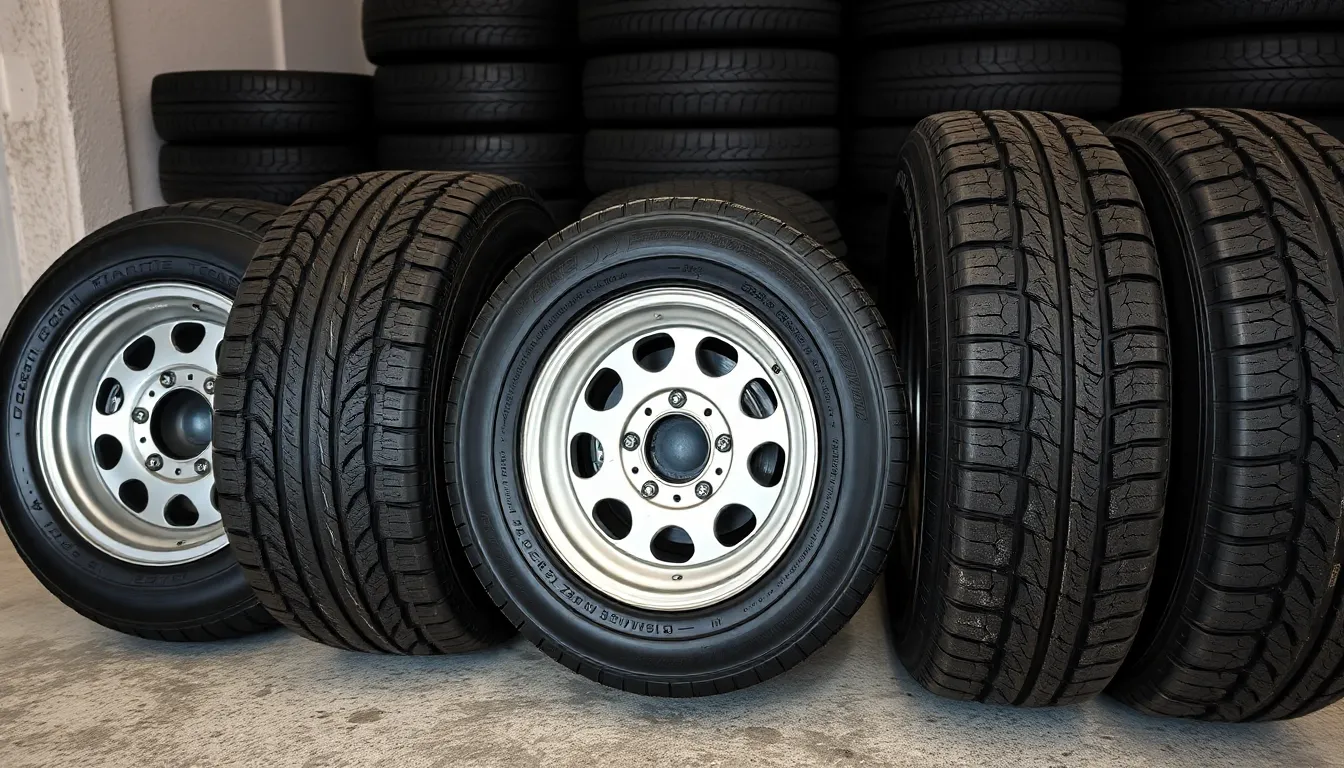
Beyond the standard factory sizes, we can explore several alternative tire options that accommodate different driving preferences and performance requirements. The 2004 Toyota Corolla accepts multiple tire size variations while maintaining proper vehicle operation.
Plus Sizing Options
Plus sizing increases both tire diameter and width while preserving the original overall circumference. We start with the original 195/65R15 size and progress through larger wheel diameters systematically.
The one step upgrade moves us to 205/55R16, providing enhanced road contact and improved handling response. Two steps up brings us to 215/45R17, delivering sharper steering precision and reduced sidewall flex during cornering.
Additional compatible alternatives include 225/40R18 for maximum performance enhancement. Each upgrade maintains speedometer accuracy when installed correctly and matched to appropriate wheel sizes.
We must consider suspension compatibility when selecting plus size options. Larger diameter tires reduce sidewall height, which affects ride quality and pothole impact absorption.
Performance vs Comfort Trade-offs
Performance tires deliver superior handling and traction capabilities but compromise ride smoothness. These tires feature stiffer sidewalls and specialized tread compounds that enhance cornering stability and braking performance.
Comfort oriented tires prioritize ride quality and noise reduction over maximum handling precision. Examples like the Goodyear Assurance WeatherReady emphasize smooth operation and quiet highway performance.
The Michelin Defender represents performance focused options that balance handling with durability. We recommend evaluating daily driving patterns before selecting between performance and comfort priorities.
Urban commuting favors comfort tires due to frequent stop-and-go conditions and road imperfections. Highway driving benefits from performance tires that provide stability at sustained speeds and confident lane changes.
Best Tire Brands and Models for 2004 Corolla
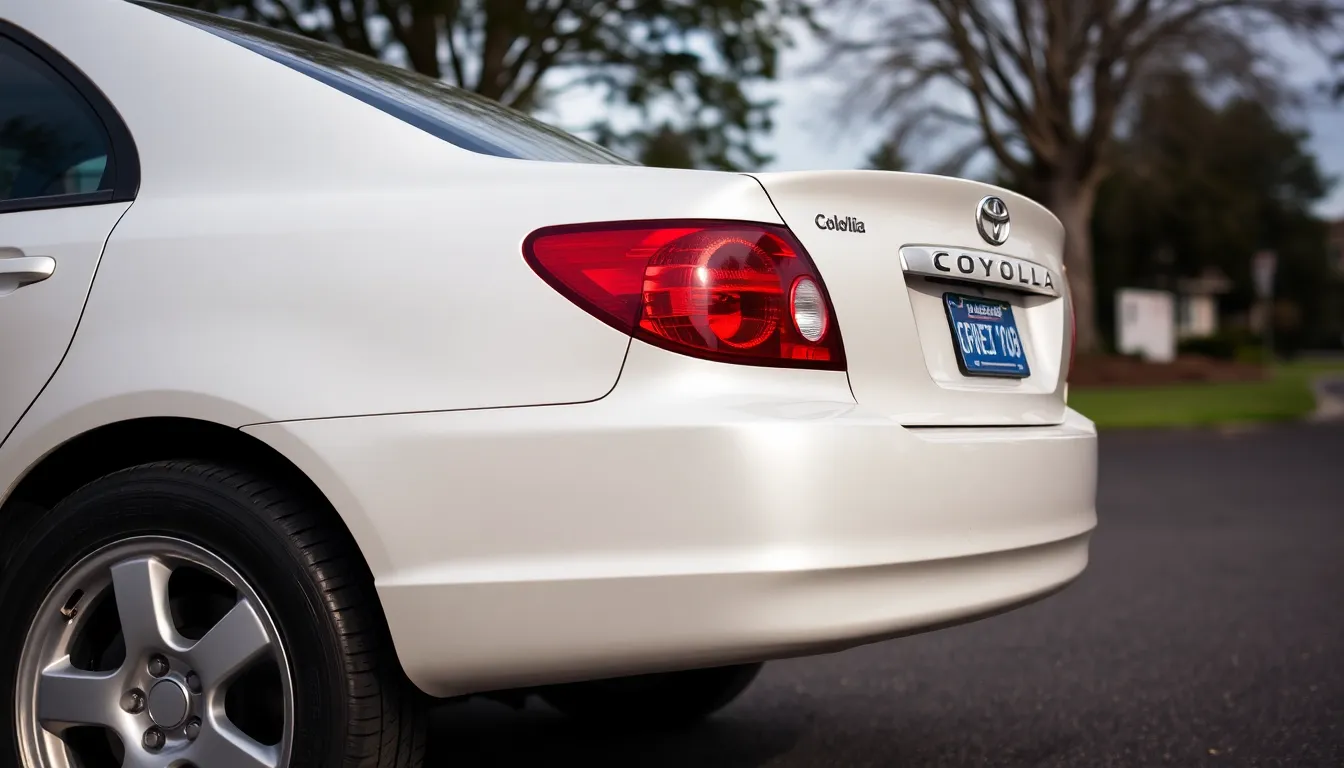
Quality tire brands make a important difference in your Corolla’s performance and safety. Based on extensive testing and customer feedback, we’ve identified the top tire options that deliver exceptional value for 2004 Toyota Corolla owners.
Michelin Defender 2 stands out as our top recommendation for relentless traction and extended tread life. This tire provides outstanding performance across multiple driving conditions while maintaining durability that exceeds most competitors. Drivers consistently report improved handling characteristics and longer replacement intervals with this model.
Goodyear Assurance WeatherReady offers true all-weather capability designed to handle nearly any weather condition. Rain and light snow performance remains reliable throughout the tire’s lifespan, making it an excellent choice for drivers facing varied seasonal conditions. The tire’s compound technology adapts to temperature changes while maintaining consistent grip.
Performance enthusiasts can explore larger aftermarket sizes ranging from 205/55R16 to 225/40R18 for enhanced handling characteristics. These upgrades provide sportier driving dynamics but require careful consideration of suspension compatibility and ride quality trade-offs. Premium brands like Continental, Bridgestone, and Pirelli offer excellent options in these larger sizes.
| Tire Brand | Model | Size Options | Key Benefits |
|---|---|---|---|
| Michelin | Defender 2 | 185/65R15, 195/65R15 | Extended tread life, relentless traction |
| Goodyear | Assurance WeatherReady | 185/65R15, 195/65R15 | All-weather capability, rain/snow grip |
| Continental | TrueContact Tour | Multiple sizes | Comfort-focused, low noise |
| Bridgestone | Ecopia EP422 Plus | 185/65R15, 195/65R15 | Fuel efficiency, eco-friendly |
Budget-conscious drivers can consider reliable alternatives from Kumho, Hankook, and General Tire without sacrificing essential safety features. These brands typically offer 40-60% cost savings compared to premium options while maintaining acceptable performance standards for daily driving.
Tire prices vary significantly based on brand positioning and technology, ranging from $56 for economy models to over $300 for high-performance variants. We recommend balancing your budget with driving requirements to select the most appropriate option for your exact needs.
Installation and Replacement Considerations

Installing or replacing tires on your 2004 Toyota Corolla requires attention to exact trim requirements and proper installation techniques. We recommend always using the manufacturer-specified tire size for your CE, LE, or S model to maintain safety and optimal performance.
When to Replace Your Tires
Replace your Corolla’s tires when tread depth reaches 2/32 of an inch or below. Tread wear indicator bars built into the tire grooves provide a visual reference for replacement timing.
Visible damage signals immediate replacement needs regardless of tread depth. Cuts in the sidewall compromise tire integrity and create safety hazards. Bulges indicate internal structural damage that can lead to sudden tire failure. Irregular wear patterns suggest alignment issues or suspension problems that require attention.
Check tread depth regularly using a penny test or tread depth gauge. Insert a penny into the tread groove with Lincoln’s head facing down. Replace the tire if you can see the top of Lincoln’s head above the tread.
Professional vs DIY Installation
Professional installation ensures correct mounting, balancing, and alignment procedures that extend tire life and maintain vehicle safety. Certified technicians possess specialized equipment for precise wheel balancing and can identify potential issues during installation.
DIY installation becomes feasible if you own proper tools and understand mounting procedures. Essential equipment includes a tire machine, wheel balancer, and torque wrench for proper lug nut installation. Improper installation can result in vibration, premature wear, or safety hazards.
Check tire pressure immediately after installation regardless of installation method. Proper inflation pressure for your 2004 Corolla appears on the driver’s side door jamb sticker. Verify fitment by examining clearance around suspension components and wheel wells before driving.
Professional installation typically includes warranty coverage and post-installation inspection services. DIY installation saves labor costs but requires investment in tools and assumes responsibility for proper procedures.
Cost Factors and Budget Planning
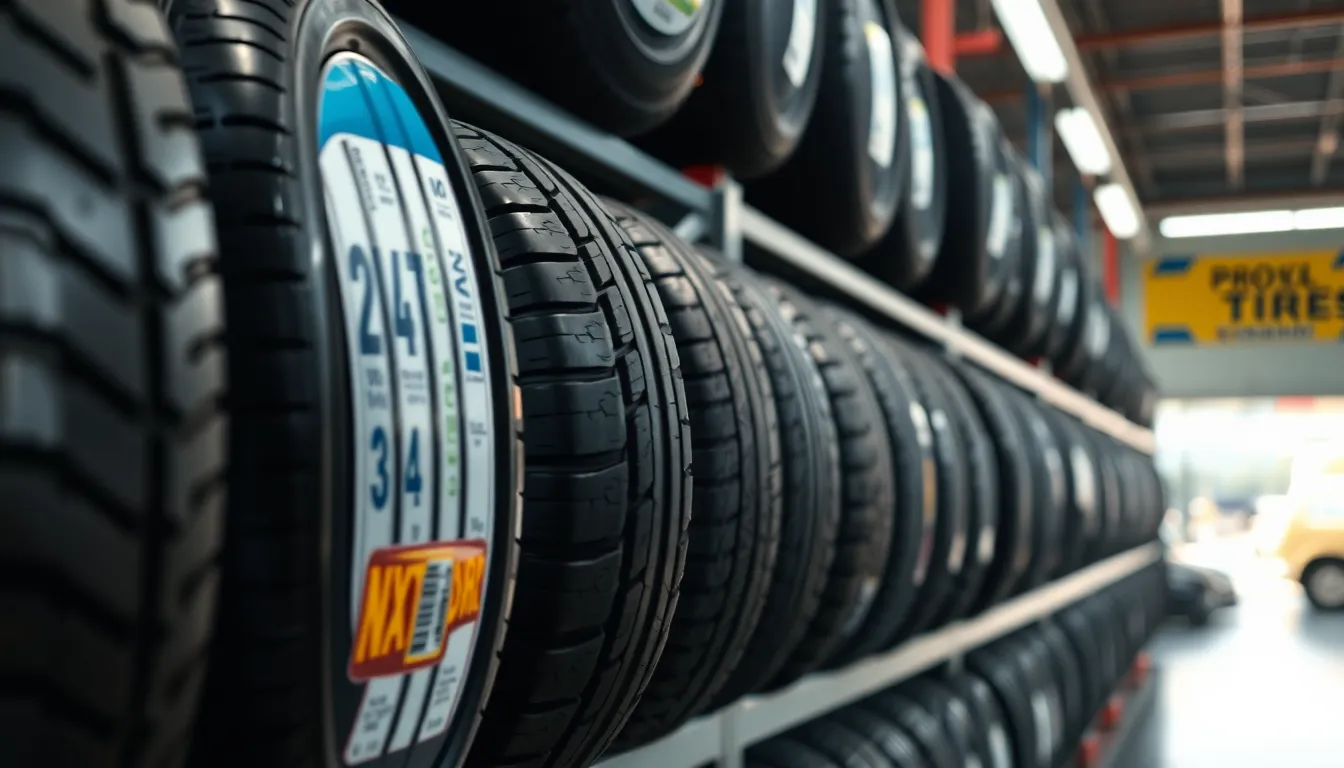
Tire replacement costs for a 2004 Toyota Corolla vary significantly based on multiple factors that directly impact your budget. We’ve found that prices range from $56 for basic options to over $330 for premium performance tires, creating a wide spectrum of choices for different financial situations.
Brand selection influences pricing substantially, with premium manufacturers like Michelin, Bridgestone, and BFGoodrich commanding higher prices but offering enhanced durability and performance. Budget alternatives from manufacturers like Kumho, Hankook, and General Tire provide cost-effective answers without compromising essential safety features.
Tire type affects the overall investment, as all-season tires typically cost less than specialized winter or high-performance options. Performance tires for larger aftermarket sizes like 205/55R16, 215/45R17, and 225/40R18 carry premium pricing due to their advanced construction and materials.
Installation expenses add to the total budget, including mounting, balancing, valve stems, and disposal fees for old tires. Professional installation services typically charge between $15-45 per tire, depending on location and additional services requested.
Seasonal promotions reduce costs significantly, with retailers frequently offering instant savings on major brands throughout the year. We recommend monitoring sales cycles from platforms like Goodyear and Discount Tire to maximize savings opportunities.
Warranty coverage impacts long-term value, as manufacturers offer different protection levels ranging from basic defect coverage to comprehensive road hazard protection. Extended warranties increase upfront costs but provide financial protection against premature tire failure.
Regional pricing variations affect budget planning, with urban markets typically offering more competitive rates due to increased competition among retailers. Rural areas may have limited options but potentially lower labor costs for installation services.
Bulk purchasing creates economies of scale, as buying complete sets of four tires often results in per-tire discounts compared to individual replacements. We suggest replacing all four tires simultaneously when possible to maintain consistent traction and handling characteristics.
Conclusion
Selecting the right tires for your 2004 Toyota Corolla doesn’t have to be overwhelming when you understand the basics. We’ve covered everything from decoding tire specifications to exploring upgrade options that can enhance your driving experience.
Remember that the factory P185/65R15 size serves as your baseline but upgrading to larger sizes like 195/65R15 or even 205/55R16 can improve handling without sacrificing reliability. Whether you choose budget-friendly options or premium brands your priority should always be matching the tire to your driving needs.
Taking advantage of seasonal sales and considering professional installation will help you get the most value from your investment. With proper research and planning you’ll find the perfect tires that balance performance comfort and cost for your Corolla.
Frequently Asked Questions
What is the factory tire size for a 2004 Toyota Corolla?
The factory tire size for a 2004 Toyota Corolla varies by trim level. The base CE model comes with P185/65R15 tires, while the LE and S models are equipped with P195/65R15 tires. This specification indicates passenger vehicle tires with specific width, aspect ratio, and wheel diameter measurements.
How do I read the tire size code on my Corolla’s sidewall?
The tire size code contains key information: ‘P’ indicates passenger vehicle, the first number (185/195) is tire width in millimeters, ’65’ represents aspect ratio (sidewall height percentage), ‘R’ means radial construction, and ’15’ is wheel diameter in inches. This alphanumeric code helps determine proper tire specifications.
Can I upgrade to larger tire sizes on my 2004 Corolla?
Yes, you can upgrade through plus sizing while maintaining overall circumference. Compatible upgrades include 205/55R16, 215/45R17, and 225/40R18. Larger sizes enhance handling and steering precision but may compromise ride comfort. Ensure suspension compatibility before upgrading to avoid performance issues.
What are the best tire brands for a 2004 Toyota Corolla?
Top recommendations include Michelin Defender 2 for durability and traction, and Goodyear Assurance WeatherReady for all-weather performance. Premium alternatives include Continental, Bridgestone, and Pirelli. Budget-conscious options from Kumho, Hankook, and General Tire offer good value without compromising safety.
How much should I expect to pay for new tires?
Tire prices for a 2004 Corolla range from $56 for basic options to over $330 for premium performance tires. Costs vary based on brand selection, tire type, and installation expenses. Consider seasonal promotions, warranty coverage, and replacing all four tires simultaneously for consistent performance and potential savings.
When should I replace my Corolla’s tires?
Replace tires when tread depth reaches 2/32 of an inch or below, or immediately if there’s visible damage like cracks or bulges. Use the penny test for regular tread depth checks. Professional installation ensures proper mounting and balancing, while DIY can save costs but requires proper tools and knowledge.

